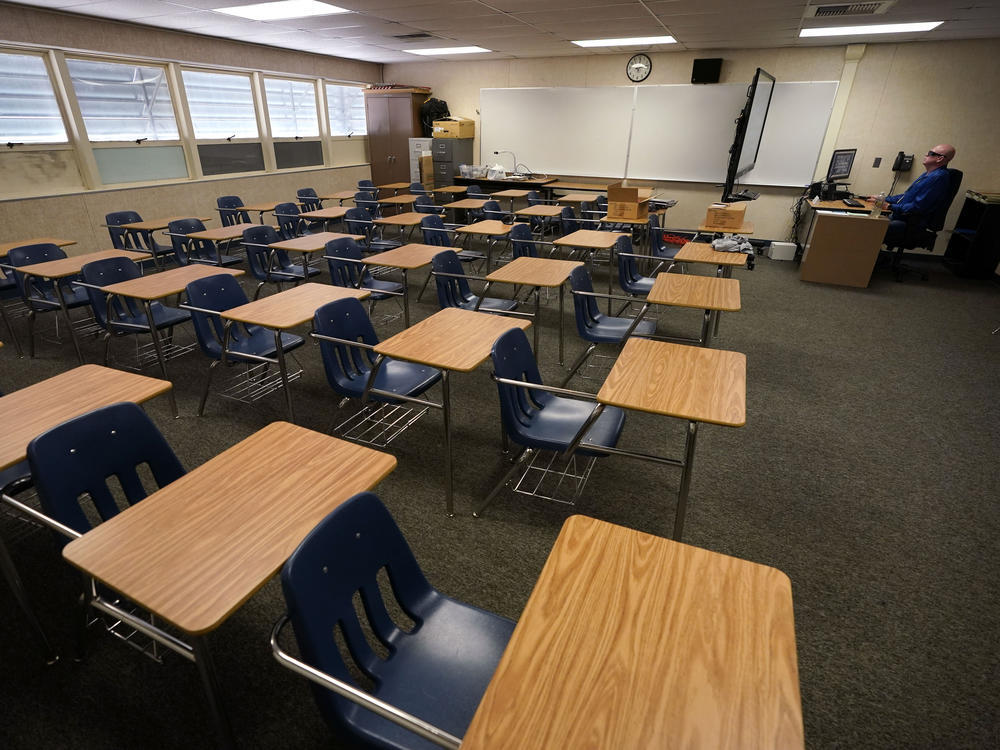
Caption
In this Aug. 18, 2020, file photo, math teacher Doug Walters sits among empty desks as he takes part in a video conference with other teachers to prepare for at-home learning at Twentynine Palms Junior High School in Twentynine Palms, Calif. California.
Credit: AP Photo/Gregory Bull, File


